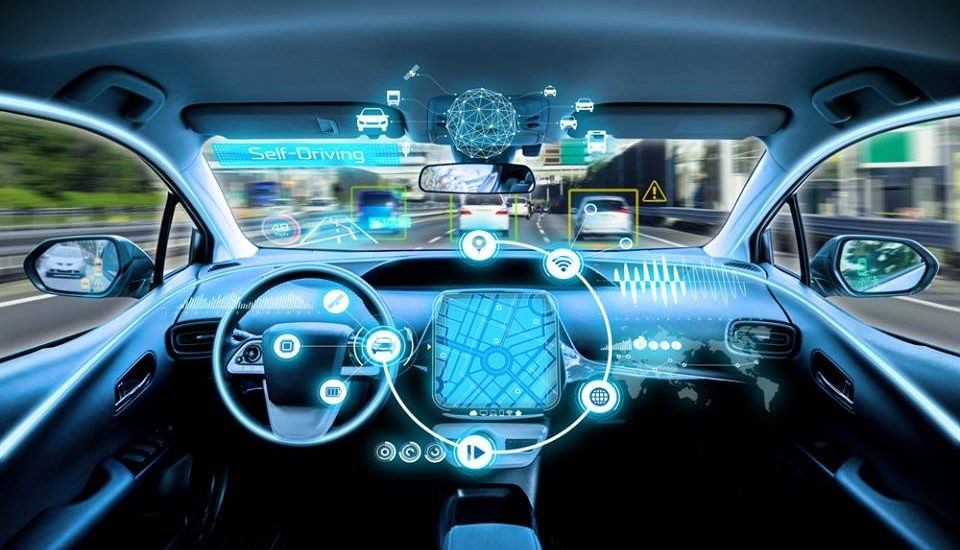Introduction:
Artificial intelligence (AI) is revolutionizing the automotive industry, driving innovation and transformation across all aspects of vehicle design, manufacturing, operation, and customer experience. From autonomous driving systems and predictive maintenance to intelligent manufacturing and personalized in-car assistants, AI technologies are reshaping the future of mobility. In this article, we explore the impact of artificial intelligence on the automotive industry, highlighting key trends, applications, and implications for the future.
Introduction to Artificial Intelligence in Automotive:
Artificial intelligence encompasses a diverse set of technologies and techniques that enable machines to perform tasks that typically require human intelligence, such as perception, reasoning, learning, and decision-making. In the automotive industry, AI is being applied to a wide range of applications, including autonomous driving, predictive maintenance, vehicle diagnostics, natural language processing, and customer relationship management.
Key Trends in AI Adoption:
Several key trends are driving the adoption of artificial intelligence in the automotive industry, including:
- Autonomous Driving: AI-powered autonomous driving systems use sensors, cameras, and machine learning algorithms to perceive and interpret the vehicle’s environment, enabling self-driving capabilities and reducing the need for human intervention.
- Predictive Maintenance: AI algorithms analyze sensor data from vehicles in real-time to predict potential failures or maintenance issues before they occur, allowing for proactive maintenance and minimizing downtime.
- Intelligent Manufacturing: AI-powered robotics and automation systems are transforming manufacturing processes, optimizing production efficiency, and improving quality control in automotive assembly plants.
- Personalized In-Car Experiences: AI-driven virtual assistants and infotainment systems personalize the driving experience by understanding user preferences, anticipating needs, and providing contextual recommendations and assistance.
- Data Analytics and Insights: AI algorithms analyze vast amounts of data collected from vehicles, sensors, and connected devices to extract actionable insights, optimize operations, and inform decision-making in areas such as fleet management, supply chain logistics, and customer service.
Applications of AI in Automotive:
- Autonomous Driving: AI-powered autonomous driving systems enable vehicles to perceive and interpret their surroundings, make real-time decisions, and navigate safely and efficiently without human intervention.
- Predictive Maintenance: AI algorithms analyze sensor data from vehicles to predict potential maintenance issues before they occur, enabling proactive maintenance and reducing downtime and repair costs.
- Intelligent Manufacturing: AI-powered robotics and automation systems optimize production processes, improve quality control, and increase productivity in automotive manufacturing plants.
- Natural Language Processing: AI-driven virtual assistants and in-car infotainment systems use natural language processing (NLP) to understand and respond to voice commands, enabling hands-free operation and personalized user experiences.
- Customer Relationship Management: AI-powered chatbots and customer service systems analyze customer inquiries and interactions to provide personalized assistance, streamline communication, and enhance customer satisfaction.
Implications of AI Adoption:
The widespread adoption of artificial intelligence in the automotive industry has several implications, including:
- Safety and Reliability: AI-driven autonomous driving systems have the potential to improve road safety and reduce accidents by eliminating human error and enhancing vehicle control and response.
- Efficiency and Productivity: AI-powered predictive maintenance and intelligent manufacturing systems optimize production processes, reduce downtime, and improve overall efficiency and productivity in automotive manufacturing plants.
- Personalization and User Experience: AI-driven virtual assistants and in-car infotainment systems personalize the driving experience by understanding user preferences, anticipating needs, and providing contextual recommendations and assistance.
- Data Privacy and Security: The increasing use of AI in automotive systems raises concerns about data privacy and security, highlighting the need for robust cybersecurity measures and data protection regulations to safeguard sensitive information and prevent unauthorized access or misuse.
Challenges and Considerations:
Despite its many benefits, the adoption of artificial intelligence in the automotive industry poses several challenges and considerations, including:
- Ethical and Regulatory Concerns: The development and deployment of AI-driven autonomous driving systems raise important ethical questions surrounding safety, liability, and decision-making algorithms, as well as regulatory considerations regarding standards, testing, and certification.
- Skills and Talent Gap: The rapid evolution of AI technology requires skilled professionals with expertise in machine learning, data science, software engineering, and robotics, highlighting the need for education and training programs to address the skills and talent gap in the automotive industry.
- Integration and Compatibility: Integrating AI-driven systems into existing vehicles, infrastructure, and business processes requires careful planning and coordination to ensure compatibility, interoperability, and seamless operation across different platforms and environments.
Conclusion:
In conclusion, artificial intelligence is driving innovation and transformation in the automotive industry, revolutionizing vehicle design, manufacturing, operation, and customer experience. From autonomous driving and predictive maintenance to intelligent manufacturing and personalized in-car assistants, AI technologies are reshaping the future of mobility and creating new opportunities for innovation and growth. By embracing the potential of AI and addressing challenges and considerations, automakers, suppliers, and other stakeholders can unlock the full potential of artificial intelligence to create safer, smarter, and more sustainable transportation solutions for the future.




